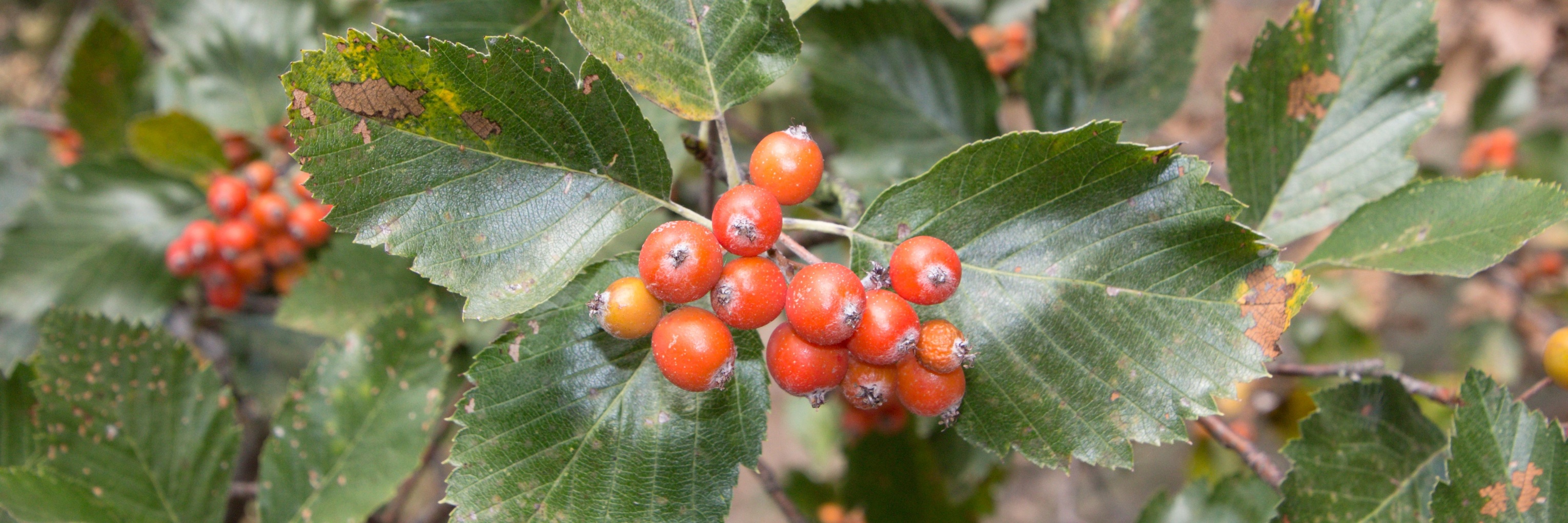Activity - Rescue program for selected species
The project will begin rescue program for selected plant species. For the first phase of the rescue program there are selected following species - Cornelian cherry (Cornus mas), yew (Taxus baccata), wild service tree (Sorbus torminalis), pubescent oak (Quercus pubescens), Gallic rose (Rosa gallica), mahaleb cherry (Prunus mahaleb), elms (Ulmus laevis, minor and glabra), dwarf Russian almond (Amygdalus nana), Siberian iris (Iris sibirica), spring snowflake (Leucojum vernum) and European globe flower (Trollius europaeus).
During the growing period, the authorized personnel will collect the seeds and fruits of selected species or parts of plants for vegetative propagation. The collected plant material will be immediately forwarded to the nurseries for further processing. The seed will undertake the necessary pre-sowing treatment followed by sowing.
For herb rescue program will be used the smaller polycarbonate greenhouse, where endangered herbs will be subject to generative or vegetative propagation. The plants in containers will be transferred from greenhouse to a small store, where they will be naturalized. After reinvigoration and acclimatization the plants will be shipped for planting.
Big polycarbonate greenhouse (5 x 8 m) will be used for the cultivation of endangered wooded species. Sowing will be carried out to cultivation beds filled with special formula substrates. Emerging seedlings will be transplanted into cups and where they will be kept for 3-5 months. Seedlings subsequently undergo acclimatization process in repository. The part of all seedlings will be shipped for planting afterwards. Part of the plants will be transplanted into larger containers and storage grown to the stage large-sized plants and saplings.
Plants will be grown by technology replicating as much as possible conditions of appropriate habitat requirements of various plant species. This will affect both the composition of substrates, as well as modification of hydrologic regime. Cultivated plants will be distributed to pre-selected locations, in order to support their presence there. Growing plants in a controlled environment will also give us a unique opportunity to study their biology.

